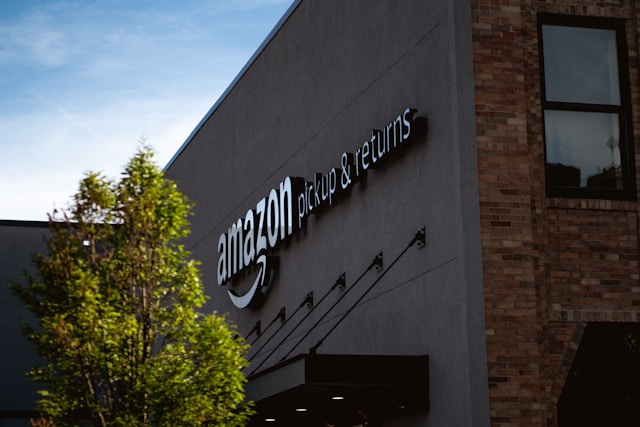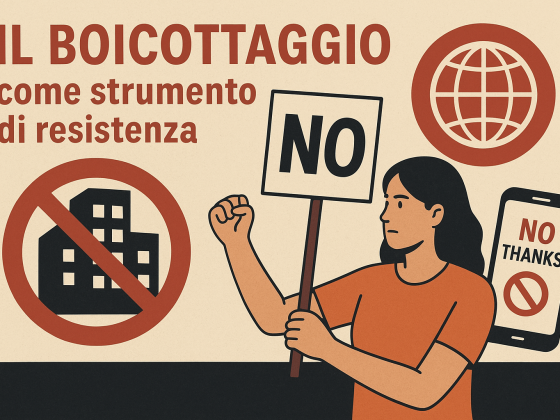One of the things that struck me while observing the political climate in the United States, and the way President Trump positioned himself right from the start towards the rest of the world, was his deliberately hostile and bullying attitude—even towards Americans themselves. The threats anticipated during his inauguration period were, at least partially, followed by actions. The way the media narrated those events was terrifying and made it seem as though there were no possible solutions to respond to the bullying acts of the President of the United States (editor’s note: with this statement I’m probably giving up the chance of traveling to the States as long as Trump remains in power. Oh well).
And yet, something unexpected happened: the bullies started to get hit back.
During Elon Musk’s stay in Washington (he too affected by a bully syndrome), Tesla’s stock plunged by 40%, with a sharp drop in sales across Europe, a decrease in China—where competition from Byd grew stronger—and a slowdown in the United States. Tesla became the target of global protests, acts of vandalism, and even arson attacks against its vehicles and infrastructure.
Musk reassured his employees, urging them to hold on to their shares, and described the attacks as “irrational” and the result of “psychopathic behavior.” To support Tesla, Trump even organized a parade of electric cars at the White House. Yet, everywhere else in the world, especially in Europe, sales plummeted, and Mr. Musk lost staggering amounts of money.
That’s when I had a thought. After all, if you remember Trump’s inauguration ceremony at the White House, none of the great moguls of the semi-monopolistic digital market were missing—among them Jeff Bezos, founder of Amazon. Another mega-billionaire who, as we all know, has always exploited the people working for his group—especially in the distribution chain—and who, as shown by Netflix’s documentary “Buy Now”, has contributed and continues to contribute to polluting our planet.
Can we really boycott Amazon?
The answer is clearly yes, but the real challenge lies in overcoming the cultural habit of having everything available immediately. This expectation of convenience has settled deeply in our minds, making it difficult to give up.
Amazon is one of the most powerful companies in the world, capable of revolutionizing online commerce and influencing the global economy. Yet, Jeff Bezos’ empire has often been criticized for its labor practices, environmental impact, and aggressive competition that threatens small and medium-sized businesses.
Here are some rules we can follow to boycott Amazon:
1. Support local and independent shops
One of the most effective ways to counter Amazon’s dominance is to support local businesses. Neighborhood shops and small enterprises often offer higher quality products and personalized service. Shopping directly from them helps the local economy and reduces the ecological footprint caused by large-scale logistics.
2. Use alternative platforms for online shopping
If you love the convenience of online shopping, there are plenty of reliable alternatives to Amazon. For example, you can find handmade or customized products on Etsy; or both new and used items on eBay.
For books, here are some alternatives:
- Independent bookstores and Italian platforms
- IBS (ibs.it) → Large catalog of new and used books, music, and films.
- Libraccio (libraccio.it) → Specializes in school books, used and out-of-print editions.
- Bookdealer (bookdealer.it) → Lets you shop directly from independent bookstores across Italy.
- Fazi Editore (fazieditore.it) and other publisher websites → To support publishers directly.
- HOEPLI (hoepli.it) → Great for technical and university texts.
- International platforms
- Feltrinelli (lafeltrinelli.it) → Online bookstore with fast shipping and discounts for members.
- Mondadori Store (mondadoristore.it) → Wide selection of books and eBooks.
- La Casa del Libro (casadellibro.com) → For Spanish-language texts.
- Wordery (wordery.com) → Free shipping and large international catalog.
- Better World Books (betterworldbooks.com) → Supports literacy projects with every purchase.
- Used and vintage books
- Re-Read (re-read.com) → Used books in excellent condition at fixed prices.
- AbeBooks (abebooks.com) → Rare, out-of-print, and collectible editions.
- Comprovendolibri (comprovendolibri.it) → Marketplace for buying and selling books between individuals.
3. Avoid Amazon’s related services
Amazon isn’t just a marketplace: it also owns services like Prime Video, Audible, and Kindle. Choosing alternatives like Netflix, Storytel, or Kobo for eBooks is an effective way to reduce your economic contribution to the company.
4. Spread awareness
Boycotts are more effective when more people join in. Sharing information about Amazon’s practices and about available alternatives helps raise awareness among friends and family, encouraging them to make more ethical choices.
5. Join awareness campaigns
There are global initiatives aimed at highlighting Amazon’s critical issues and promoting more sustainable consumer models. Following associations and groups active on these topics can provide fresh ideas and tools for an effective boycott.
A possible change
Boycotting Amazon may seem like a challenge, but even small everyday choices can make a real difference. Supporting more ethical alternatives not only promotes a fairer market but also helps reduce environmental impact and protect workers’ rights.
(by Viviana Musumeci, founder of Gaiazoe)











